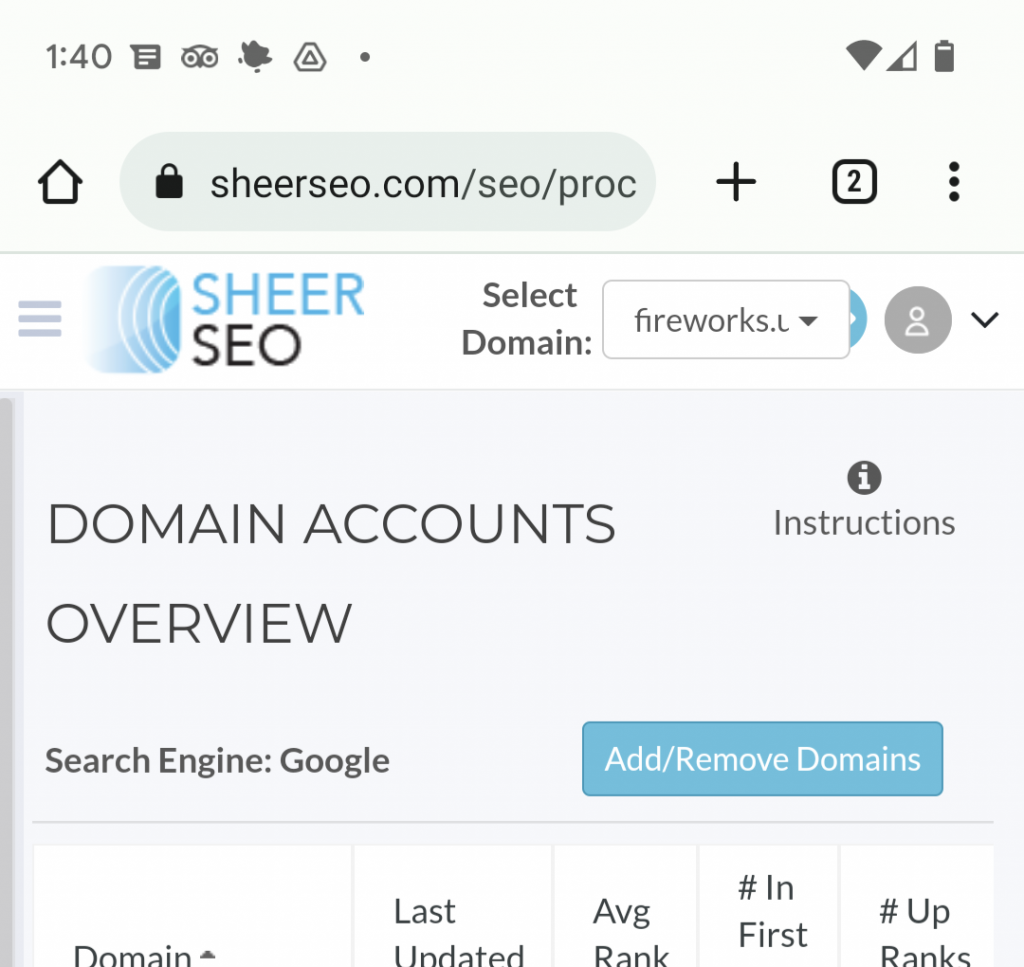How to Write SEO-Friendly Content in 2021

Optimized content usually consists of text and images, displayed on your website, which is geared towards achieving high ranking in search engines. This makes text optimization a very important step in the process of website promotion. You should learn how to create SEO-friendly content which will be interesting, easy for your users to read, and SEO-oriented without being dull or redundant. Besides, well-optimized text must contain keywords necessary for search engine promotion, which are placed correctly and used in necessary proportions.
This article will teach you how to write for SEO, avoid the typical mistakes all content creators make and will help you produce attractive and efficient content for your website. If you are interested in learning more, keep reading!
What Differs SEO Content from Regular Text
SEO stands for Search Engine Optimization. There is a misconception that filling a regular article with selected keywords will make it SEO-friendly, but it is not that simple. The list of requirements for good SEO content covers such aspects as:
- length;
- quality;
- authenticity;
- readability;
- helpfulness for users;
- relevancy;
- correct grammar, spelling;
- consistent style;
- good structure;
- eye-catching design;
- use of correct keywords and their appropriate density, etc.
You can find examples of high-quality well-optimized texts on the first page of search results in Google or other services. If an article is on the first page when you search by a specific request, it speaks of its attractiveness for both readers and corresponding ranking algorithms.

Simple Guide to Quality Writing
- Establish your goal
This is a crucial first step for any commercial writing. Is your goal to sell a product? Create a certain company image? The goal of your content will influence the style and tone of your text, so you should always carefully define your goal before starting writing. Remember that goals can differ for texts on different pages of your website.
- Define target audience
Who are you addressing, what impression do you want to achieve? Make a “portrait” of your typical reader: what is their age, gender, interests, education, profession, social status, marital status, financial situation, and most importantly – needs.
- Think the title over
The title of an article is a quintessence of its contents, so it’s very important to get it right. A good title doesn’t focus on the qualities of a company or product, but on the benefits, it can provide for its clients. Leave title creation for last – the best headlines are often born out of a finished article.
- Start with a plan
A plan will help you structure your thoughts on the topic, see what you know from the top of your head and what needs researching, will not allow you to forget anything important, as well as help you avoid repetitions. List everything you are going to write point by point, then arrange points into a logical order.
- Get it all out
Write down everything you want to say. Write as it comes to mind, do not get fussy about proper expressions, structure, or text format – just allow your thought to flow. This way your thoughts and ideas will form more freely, and will not get lost while you are trying to think of the perfect term to describe something with.
- Organize structure
Arrange written text in accordance with your plan, organize it into paragraphs.
Every point you make should have a structure that goes something like this:
- main idea (thesis);
- facts supporting this thesis;
- examples;
- output.
- Refine
Fine-comb your text, double-check everything and work out any kinks that may have slipped through.
Now that your writing skills are through the roof, we should let you know that writing a good text is not enough – you also must make sure that your audience reads it. Therefore, we advise you to spend as much time optimizing and distributing your content as creating it.

Recommendations for Writing Optimized Content in 2021
Writing informational, engaging, SEO-friendly text is by no means an easy task. Complying with all the rules for creating optimized content without sacrificing the article’s readability, style, or diluting its meaning is quite difficult. Fortunately, there are experts online who can help you write SEO-friendly content – many professional copywriters will gladly help you with this difficult task. However, if you want to learn how to write for SEO yourself, following certain basic rules and tips will definitely help you.
Here are a few points that should always be on your mind when composing content:
- Content uniqueness.
Copying text from other web resources is perceived by search engines as plagiarism, and if you do so your site will be marked as such that does not provide new benefits for Internet users. You should always reveal some new information on the chosen topic, summarize scattered information from other sources, elaborate on it, offer your own insight.
The text you post should always be authentic. If the text you use is duplicated, then your page will not be indexed, which means that none of the users would see it. Text authenticity of 95-100%, as far as a search engine is concerned, indicates high-quality content.
- Content Quality.
If you are wondering how to write for SEO, we must warn you that content quality is a key aspect of success. Your content should be relevant, comprehensible, informative, and easily digestible. Content should also be useful, presenting readers with full updated information on a chosen topic so that they could find all needed information on your website without visiting any other web resources.
Also, users will have a hard time reading your content if it contains mistakes. Avoid spelling, grammar, punctuation, other errors as best you can. Always proofread your text multiple times and check it for errors using online services such as Grammarly.
- Text structure and keyword distribution.
Structuring your text will make it look more inviting, easier to read, and locate specific points the user is interested in. Always add appropriate headings and subheadings, which will help divide your content into subsections, allow your visitors to navigate the text with ease. The first paragraph should always contain your main keyword. Most important keywords and phrases should be included in headings and meta tags on the designated page.
- Avoid excessive keyword use.
Many content creators that struggle with how to write for SEO often pack their texts full of keywords, not knowing the dangers it may pose. Algorithms can mark content as spam if you oversaturate your content with keywords. Being moderate with a number of used keywords, their placement in the text is important. A normal indicator of keyword density is considered to be about 1%. One better avoids using keywords more than 1/2 times for every 100 words of the text. If the limit is exceeded, your site may suffer from sanctions imposed by search engines.
- Sticking to the topic.
The article should follow a chosen topic, providing users with consecutive information on the subject and answering their queries. Many content writers sometimes go off-topic when creating SEO-friendly texts, as they place their main focus on keywords, disregarding other aspects of the article.
- Visualization.
Many users perceive information better when it is represented visually. For this purpose, it is advisable to integrate pictures, charts, diagrams, spreadsheets, etc. into your article – they make your text easier to follow and understand. In addition, such content is highly appreciated by search engines. Always add short descriptions to your images, which are known as alt tags. This is done for users who disable the display of images on websites in order to save traffic, or in case images are not displayed for some other reason. If images have alt descriptions, website visitors can decide which of them they wish to upload. Also, an algorithm counts alt tags as an additional explanation of the article’s content.
- Utilize Links.
With the aim of creating SEO-friendly content for your website, you should add internal and external links to your text. If you have information on your site that is interesting for users and relevant to your article’s topic, do not hesitate to link it within the article. External links to credible resources can also improve your site’s ranking. Adding links to your text will greatly improve navigation on your resource as well as its position in the search results.
- Keep it Brief.
Having learned how to write for SEO many content creators lose track of their word count, which is a big mistake. Don’t overload your users with huge amounts of information, as extensive articles are hard to read, likely increasing your bounce rate. It is recommended to upload texts which include from 1500 to 2500 words.
Geared Up and Ready to Go
Preparing high-quality material is difficult, but if you break this process down into sequential stages, it becomes much easier to write a perfect SEO-friendly article. The approach described above will allow you to make the article useful for users, as well as high-quality from search engines’ point of view. Follow the aforementioned tips, and you will be able to create top-quality optimized content swiftly and effortlessly!
BIO: Alison Lee
An aspiring writer and editor, Alison likes uncovering the secrets of good writing and educating people on different tips and tricks that will elevate one’s writing technique. She gladly shares her expertise with people regardless of their area of expertise and level of experience – her articles are always easy to read and inclusive of all readers. Alison works with
https://subjecto.com/ to create various essay samples, providing users with a prime example of top-shelf writing, from which they can learn and draw inspiration. In her free time, Alison enjoys baking and gardening.



SEO-friendly content is content written in such a way that it helps search engines understand what it is about, what user queries it is responding to, and what people will learn from your article. I love the way you provide info in this article & audience who will come to read or finding such information may also like it.
Alison Lee You just explained it very well for 2021 these all tips would make a perfect Article.
Thanks & God Bless You
SEO-friendly content isn’t all about keywords. It’s also about how authoritative you are as an author and even how well you structure your posts. Structuring your posts for readability will also help to optimize them for mobile, another major factor in search engine rankings.
Thanks for sharing, this post is very nice and useful post
Thank you very much for your article. I found it very interesting and helpful.
Nice article. Well written and very insightful
I would say that SEO friendly contents are a necessity for bloggers, writers and online business owners with websites. Your article really highlights this. I’m impressed
Nice work. It’s a privilege coming across such article.
It’s so nice coming across an article as such .this information was so helpful.
Thanks for sharing this amazing post. I’m highly inspired by it.
Thanks for sharing this informative post.